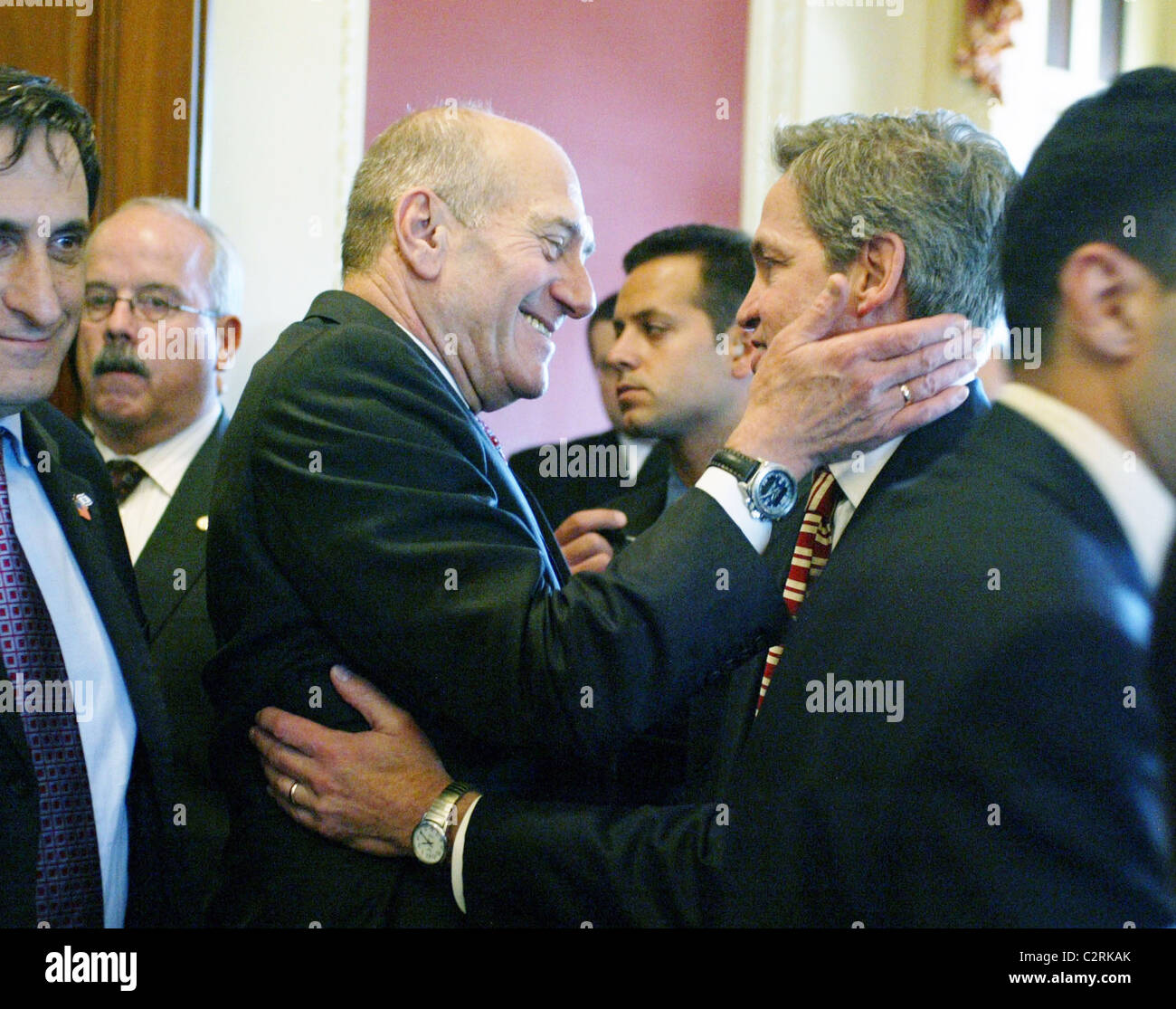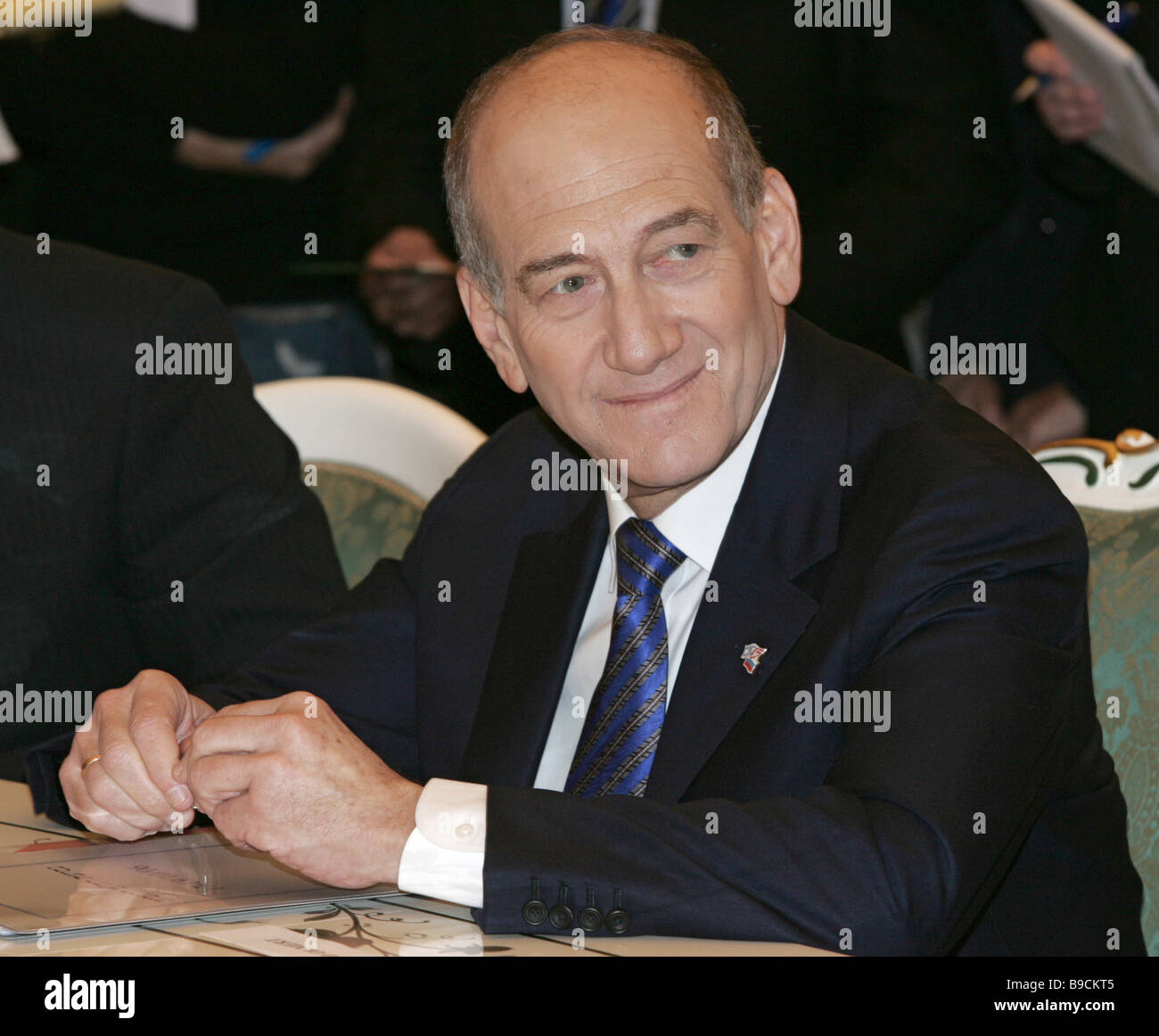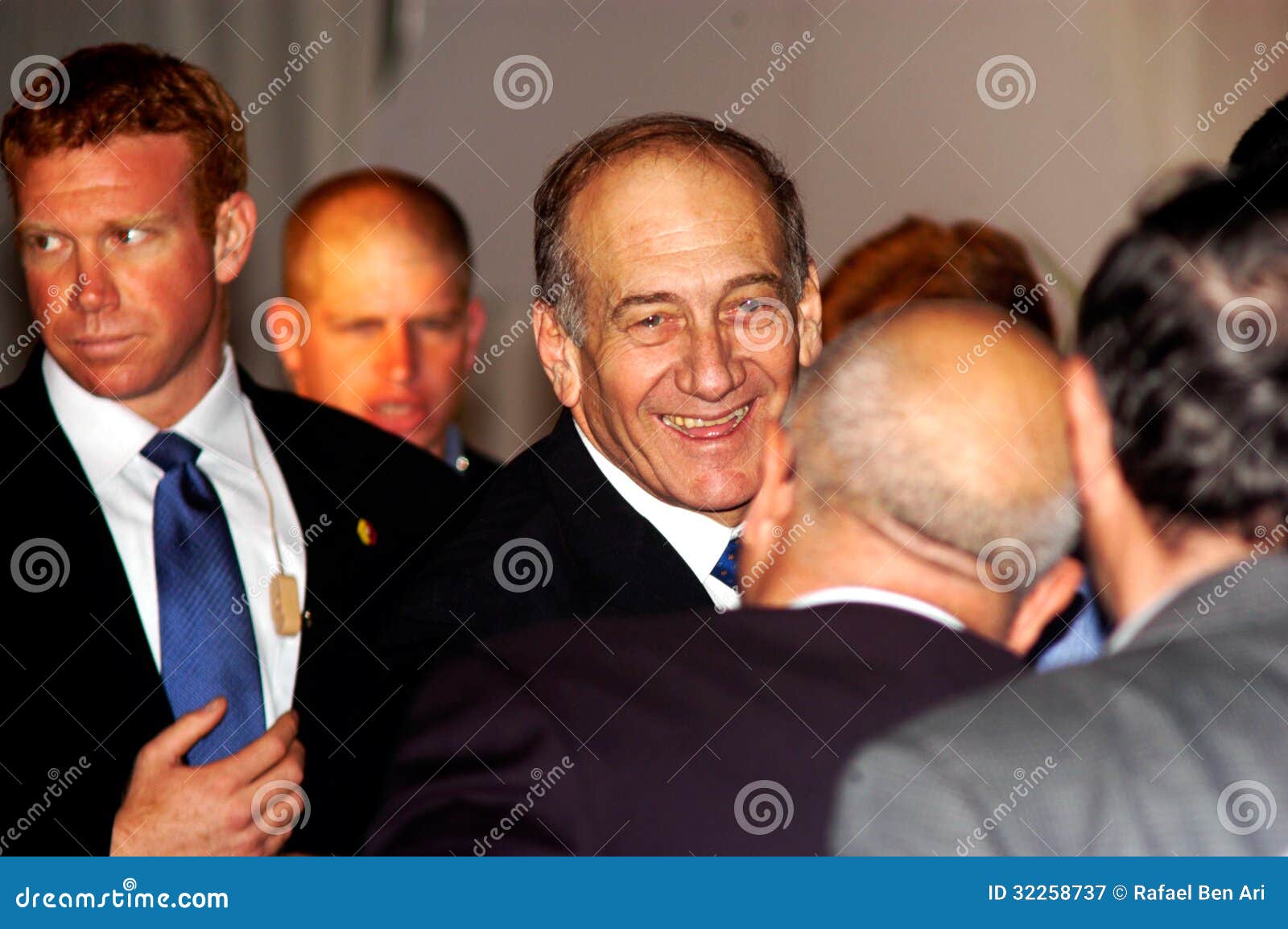Ehud Olmert: 26th Prime Minister Of Israel

Prime Minister of Israel Ehud Olmert and Senator Norm Coleman - Source www.alamy.com
Editor's Notes: "Ehud Olmert: 26th Prime Minister Of Israel" has published today date. This topic is important to read because it provides a comprehensive overview of Ehud Olmert's life and career, as well as his time as Prime Minister of Israel.
After analyzing various sources, digging into the details, and gathering relevant information, we have compiled this informative guide on Ehud Olmert: 26th Prime Minister of Israel. This guide will provide you with a thorough understanding of his life, political career, and significant events during his tenure as Prime Minister.
Key Takeaways:
| Aspect | Key Points |
|---|---|
| Birth and Early Life | Born in 1963 in Binyamina, Israel |
| Political Career | Joined the Likud party and held various ministerial positions before becoming Prime Minister |
| Prime Ministership | Served as Prime Minister from 2006 to 2009 |
| Notable Accomplishments | Led Israel during the 2006 Lebanon War and initiated peace negotiations with the Palestinians |
| Controversies | Resigned in 2009 amid corruption allegations |
| Legacy | Remains a controversial figure in Israeli politics |
Main Article Topics:
FAQs by Ehud Olmert
This section presents frequently asked questions pertaining to the tenure and policies of Ehud Olmert, the 26th Prime Minister of Israel. These questions address various aspects of his leadership and key decisions made during his term.

Ehud Olmert Israeli Prime Minister at the negotiation table in the - Source www.alamy.com
Question 1: What were Ehud Olmert's foreign policy priorities as Prime Minister?
Answer: Olmert's foreign policy focused on several key objectives. These included strengthening Israel's relations with the United States, pursuing a two-state solution to the Israeli-Palestinian conflict, and promoting peace and stability in the Middle East. He believed that a comprehensive approach was necessary to address the region's complex challenges, including the threat of terrorism and the need for economic development.
Question 2: What was the significance of the 2005 Israeli withdrawal from the Gaza Strip?
Answer: Olmert's decision to withdraw Israeli settlers and troops from the Gaza Strip was a controversial but significant event. It marked the first time that Israel had unilaterally relinquished control of territory it had occupied since 1967. The withdrawal was part of Olmert's broader plan for peace in the region, and aimed to improve the lives of Palestinians living in Gaza.
Question 3: What were the key features of Olmert's economic policies?
Answer: Olmert implemented a series of economic reforms during his time as Prime Minister. These reforms focused on promoting economic growth, increasing competitiveness, and reducing poverty. They included measures to cut taxes, reduce government spending, and encourage foreign investment. Olmert believed that a strong economy was essential for Israel's long-term security and prosperity.
Question 4: How did Olmert handle the 2006 Lebanon War?
Answer: The 2006 Lebanon War was a significant military conflict between Israel and Hezbollah. Olmert's handling of the war was controversial, and it is generally considered to have been a failure. Hezbollah, a militant group based in Lebanon, launched rockets into Israel, prompting Israel to respond with a full-scale invasion of Lebanon. The war lasted for 34 days and resulted in the deaths of over 1,000 Lebanese civilians and 165 Israeli soldiers.
Question 5: What were the circumstances surrounding Ehud Olmert's resignation as Prime Minister?
Answer: Olmert resigned as Prime Minister in 2009, amid corruption allegations and growing public dissatisfaction with his leadership. He was subsequently convicted and sentenced to prison for taking bribes. The corruption scandal surrounding Olmert was a major blow to his reputation and left a lasting legacy of controversy.
Question 6: What is Ehud Olmert's legacy as Prime Minister of Israel?
Answer: Ehud Olmert's legacy as Prime Minister is a complex and contested one. His supporters credit him with taking bold steps towards peace with the Palestinians, while his detractors argue that he made concessions that weakened Israel's security. His handling of the 2006 Lebanon War remains controversial, as does his eventual downfall due to corruption allegations.
Tips by Ehud Olmert: 26th Prime Minister Of Israel
Ehud Olmert, Israel's 26th Prime Minister, is a highly respected leader who has shared many insights throughout his career. Here are some valuable tips he has offered:
Tip 1: Embrace Diversity and Inclusivity
Recognize the strength in diversity and create an environment where all individuals feel valued and respected. Promote inclusivity by fostering dialogue and understanding among different perspectives.
Tip 2: Prioritize Empathy and Compassion
Develop empathy towards others and strive to understand their needs and perspectives. Compassionate leadership connects people emotionally and builds stronger relationships.
Tip 3: Encourage Active Listening
Truly listen to what others are saying, both verbally and nonverbally. Paying attention and engaging in thoughtful dialogue shows respect and fosters trust.
Tip 4: Take Calculated Risks
Don't shy away from making bold decisions, but do so thoughtfully. Evaluate potential risks and rewards, and be prepared to adapt if necessary.
Tip 5: Foster Collaboration and Innovation
Encourage teamwork and collaboration to achieve shared goals. Create an environment that fosters innovation and creativity, allowing ideas to flourish.
Tip 6: Nurture Long-Term Relationships
Invest in building strong relationships with colleagues, stakeholders, and the community. Trust and mutual respect are essential for effective leadership and enduring collaborations.
By embracing these principles, leaders can create positive and productive environments, foster innovation, and drive success.
Ehud Olmert: 26th Prime Minister Of Israel
Ehud Olmert left an indelible mark as Israel's 26th Prime Minister, shaping the nation's history in various ways.
- Controversial Lebanon War: Led a divisive military operation in 2006, facing criticism.
- Peace Negotiations: Resumed negotiations with the Palestinian Authority, seeking a two-state solution.
- Jerusalem Expansion: Approved settlement construction in East Jerusalem, sparking international condemnation.
- Domestic Challenges: Faced domestic corruption charges and allegations of mishandling the Lebanon War.
- Political Alliances: Maintained close ties with the United States and Europe, advocating for Israel's security.
- Legacy: Remembered for his bold decisions, controversial policies, and efforts towards peace, despite facing criticism.
Olmert's impact remains a subject of debate. His handling of the Lebanon War drew criticism, but his efforts towards peace with the Palestinians showed his commitment to resolving the conflict. His approval of Jerusalem expansion sparked controversy, but his strong alliances with international partners highlighted his diplomatic acumen. Overall, Ehud Olmert's tenure as Prime Minister was a complex and impactful period in Israel's history, marked by bold decisions, domestic challenges, and efforts towards peace.

Israel's Prime Minister Ehud Olmert takes a look at the exhibition - Source www.alamy.com
Ehud Olmert: 26th Prime Minister Of Israel
Ehud Olmert was the 26th Prime Minister of Israel, serving from 2006 to 2009. He was a member of the Kadima party and previously served as the Minister of Finance, Minister of Industry and Trade, and Mayor of Jerusalem.

Ehud Olmert - 12th Prime Minister of Israel Editorial Photography - Source www.dreamstime.com
Olmert's premiership was marked by the 2006 Lebanon War, the Gaza War, and the ongoing conflict with the Palestinians. He also oversaw the Annapolis Conference in 2007, which was an attempt to restart the Israeli-Palestinian peace process.
Olmert resigned in 2009 after being indicted on corruption charges. He was convicted in 2014 and sentenced to six years in prison. In 2017, his sentence was reduced to four years on appeal. He was released from prison in 2018.
Olmert's premiership was a tumultuous period in Israeli history. He was a controversial figure, but he also played a significant role in shaping the country's future.
Conclusion
Ehud Olmert's premiership was marked by war, peace, and controversy. He oversaw the 2006 Lebanon War and the Gaza War, but he also attempted to restart the Israeli-Palestinian peace process with the Annapolis Conference. He was a complex and flawed figure, but he also played a significant role in Israeli history.
Olmert's legacy is likely to be debated for years to come. However, there is no doubt that he was one of the most important Israeli leaders of his generation.



